Carpenter Lecture Series
The series, held every other year, is sponsored by the Economics Division.
2018 Carpenter Lecture Series
Health Care in America: A Play in Two Acts
David Cutler, Harvard University
Thursday, March 1, 2018, Olin Hall
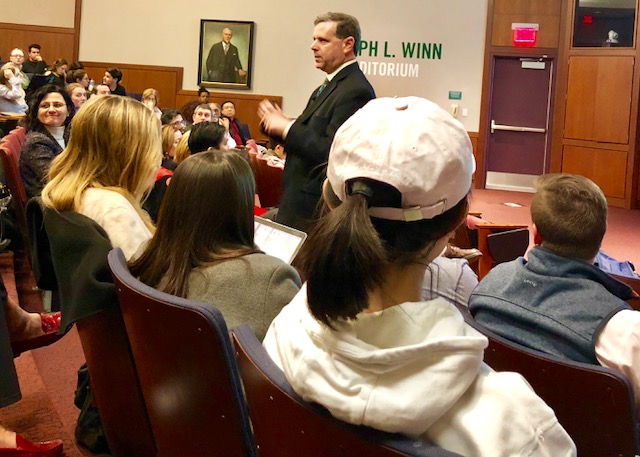
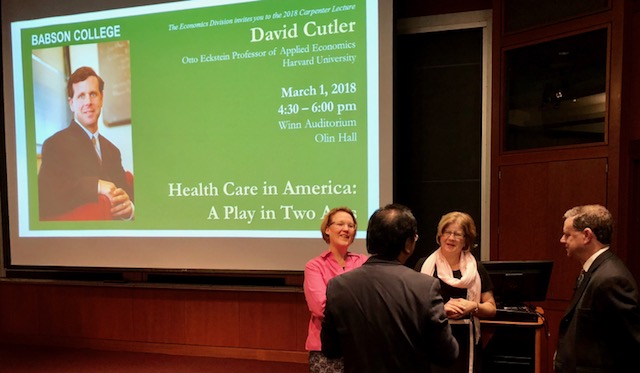
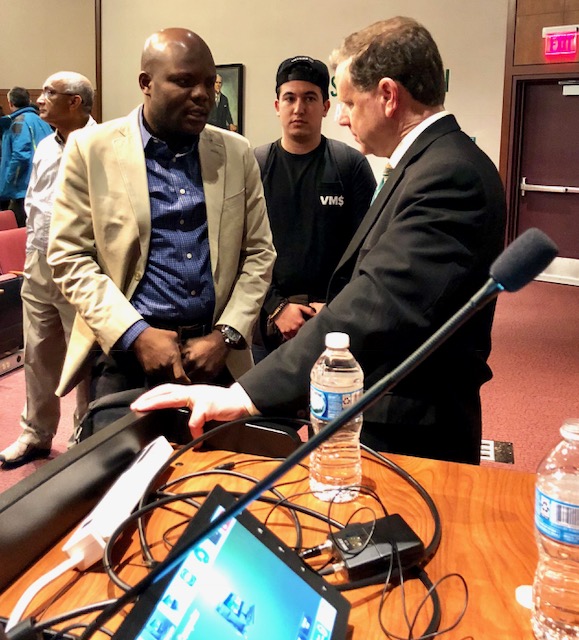 Photo credits: Patricia Yusah
Photo credits: Patricia YusahDavid Cutler’s work in health economics and public economics has earned him significant academic and public acclaim. Currently the Otto Eckstein Professor of Applied Economics in the Department of Economics and named Harvard College Professor in 2014, Professor Cutler holds secondary appointments at the Kennedy School of Government and the School of Public Health.
Professor Cutler was a key advisor in the formulation of the recent cost control legislation in Massachusetts, and is one of the members of the Health Policy Commission created to help reduce medical spending. He served on the Council of Economic Advisers and the National Economic Council during the Clinton Administration and has advised the Presidential campaigns of Bill Bradley, John Kerry, and Barack Obama as well as being Senior Health Care Advisor for the Obama Presidential Campaign.
As of 2016, U.S. health care expenditure accounted for 17.9% of GDP, averaging $10,348 per person. Much effort has been carried out in the past to control costs, most recently with the Affordable Care Act. His lecture examined how health care reform is playing out in the United States. The two acts correspond to two dimensions of reform: the political component and the market component.
2016 Carpenter Lecture Series
How Machine Intelligence Can Produce Smarter Policies
Sendhil Mullainathan, Harvard University
March 30, 2016, Winn Auditorium, Olin Hall
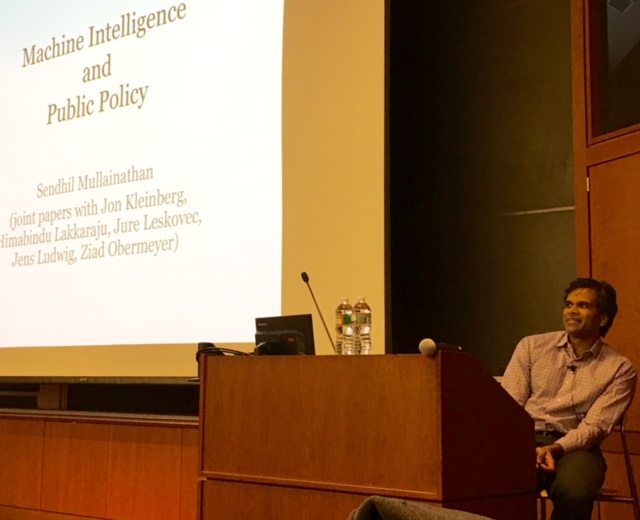
Machine intelligence is permeating everyday life. It’s already in our phones, airplanes and cameras, and soon it will be in our cars, schools and houses. In this talk, Sendhil Mullainathan will argue that this same intelligence can help us make better policies. “Better” means not only more efficient but also fairer. Professor Mullainathan will illustrate these ideas in two areas: crime and health care. In both cases, he argues that we can cut costs, and improve quality of outcomes (less crime or better health) and be more fair. His prediction is that machine intelligence will serve as a decision aid and not as a substitute for human decision making.
Sendhil Mullainathan is one of the most renowned behavioral economists of our time. He is a recipient of the prestigious MacArthur “Genius” Award and is the Robert C. Waggoner Professor of Economics at Harvard University. He was designated a Young Global Leader by the World Economic Forum, labeled a Top 100 Global Thinker by Foreign Policy Magazine, and named by Wired (UK) the Smart List: 50 people who will change the world.
Professor Mullainathan’s work runs a wide gamut: the impact of poverty on mental bandwidth; whether CEO pay is excessive; using fictitious resumes to measure discrimination; showing that higher cigarette taxes make smokers happier; and modeling how competition affects media bias. His latest research focuses on using machine learning and data mining techniques to better understand human behavior.
2013 Carpenter Lecture Series
The Emergence of a New Economy: How scale, connection and time are the keys to a sustainable future
Juliet Schor, Boston College
February 28, 2013, Sorenson Center for the Arts
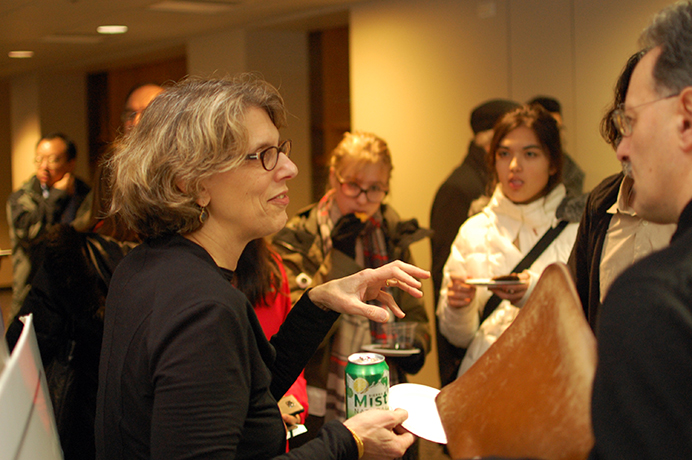
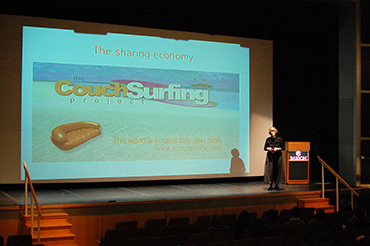
In recent years a “new economy” has been emerging out of the stagnation of the “Business-as-Usual” economy. The new economy focuses on ecological sustainability, with renewable energy and closed loop principles at its core. But it has other, less recognized aspects. These include a new economics of scale, in which smaller networked units can achieve high productivity; the economic value of social connection; and the new patterns of time use which can rebalance the labor market and reduce carbon and eco-footprints. Using the concept of “plenitude,” a low footprint, time-affluent, high-satisfaction alternative to BAU, Professor Schor will outline her vision for shifting from the current ecologically destructive and increasingly dysfunctional economy to one that meets human needs in a sustainable way.
Julier Schor is a Professor of Sociology at Boston College. She is also a member of the MacArthur Foundation Connected Learning Research Network. Before joining Boston College, she taught at Harvard University for 17 years, in the Department of Economics and the Committee on Degrees in Women’s Studies. A graduate of Wesleyan University, Schor received her Ph.D. in economics at the University of Massachusetts.
Her most recent book is True Wealth: How and Why millions of Americans are Creating a Time-Rich, Ecologically Light, Small-Scale, High-Satisfaction Economy. Previous books include national best-seller The Overworked American: The Unexpected Decline of Leisure. This book appeared on the best-seller lists of The New York Times, Publisher’s Weekly, The Chicago Tribune, The Village Voice, The Boston Globe as well as the annual best books list for the The New York Times, Business Week, and other publications. The book is widely credited for influencing the national debate on work and family.
Schor is currently working on issues on environmental sustainability and their relation to Americans’ lifestyle and the economy and the emergence of a conscious consumption movement. She is co-founder of the Board of the Center for a New American Dream (newdream.org), a national sustainability organization.
Willard Duncan Carpenter Lecture Award
The Willard Duncan Carpenter Lecture is a biannual program that focuses on current problems and challenges confronting the business community. It was established by the late Mrs. Eric F. Storm in memory of her husband. The awardees who deliver the lecture are chosen by Economics Division faculty for their excellent scholarship in economic sciences and their contributions to the public interest.
2016

Sendhil Mullainathan
Professor of Economics, Harvard University
Sendhil Mullainathan is the Robert C. Waggoner Professor of Economics in the Faculty of Arts and Sciences at Harvard University. He received the MacArthur “Genius” Award, was selected as a Young Global Leader by the World Economic Forum, was named a Top 100 Global Thinker by Foreign Policy Magazine, and was named by Wired (UK) to the Smart List: 50 people who will change the world.
He received a bachelor’s degree in computer science from Cornell University at age 20 and a PhD from Harvard University when he was 25, and he returned to Harvard from MIT as a tenured faculty member when he was 31. His work covers a wide range of subjects, from behavioral economics (mainly) to economics of poverty, labor markets, discrimination, and CEO pay. He co-founded the Abdul Latif Jameel Poverty Action Lab at MIT (a center to promote the use of randomized controlled trials in development), as well as Ideas42 (a nonprofit organization that applies behavioral science to design scalable solutions to some of society’s most difficult problems), and serves on the board of the MacArthur Foundation.
He is affiliated with the National Bureau of Economic Research and the Bureau for Research and Economic Analysis of Development, has worked in various governmental roles, and is a member of the American Academy of Arts and Sciences.
2013
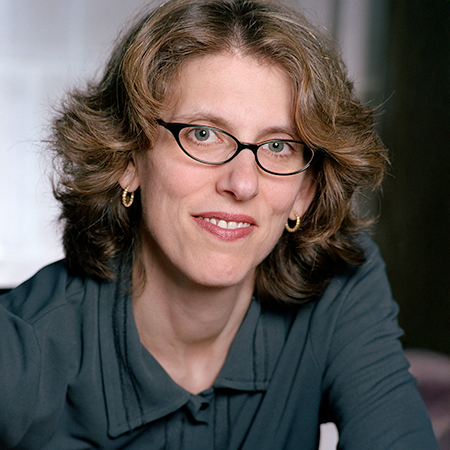
Juliet Schor
Professor of Sociology, Boston College
Professor Juliet Schor is an economist and a professor of sociology at Boston College. She also is a member of the MacArthur Foundation Connected Learning Research Network. Before joining the faculty of Boston College, Professor Schor taught at Harvard University for 17 years, in the Department of Economics.
Her scholarship is focused on consumerism and working hours. Her most recent book, Plenitude: The New Economics of True Wealth, develops a new definition of wealth and wealth creation that is economically and ecologically sustainable. She was a recipient of the 2006 Leontief Prize from the Global Development and Economics Institute at Tufts University for expanding the frontiers of economic thought and a 1995–1996 fellowship from the John Simon Guggenheim Memorial Foundation.
Professor Schor has served as a consultant to the United Nations University’s World Institute for Development Economics Research, and to the United Nations Development Program.
2011
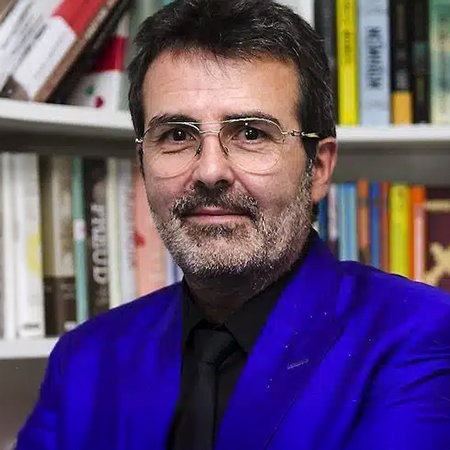
Xavier Sala-i-Martin
Professor of Economics, Columbia University
Xavier Sala-i-Martin is a professor of economics at Columbia University and one of the leading scholars in the field of economic growth. His scholarship includes topics in development economics, the economics of social security, and monetary economics. He received his PhD from Harvard University.
Professor Sala-i-Martin also has many nonacademic commitments that enhance the impact of his scholarship. He is an active contributor to media, appearing weekly on the Catalan radio network and on the Catalan TV talk show Divendres, and writing columns in the Catalan newspaper La Vanguardia. He also is the chief economic adviser for the World Economic Forum and has served as a consultant for the IMF and the World Bank. Professor Sala-i-Martin is the founder and CEO of two NGOs dedicated to helping the citizens of Africa.
His interests extend beyond his professional activities; he was a board member of FC Barcelona and treasurer of the club between 2004 and 2010.
2008
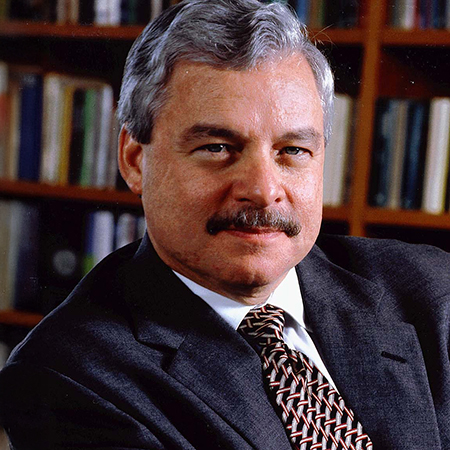
Richard Schmalensee
Howard W. Johnson Professor of Management, Emeritus; Professor of Economics, Emeritus; Dean, Emeritus, MIT Sloan School of Management
Professor Richard Schmalensee’s scholarship has been in the fields of industrial organization and its application to public policy, as well as to business decision-making. He has been awarded the titles of 2012 Distinguished Fellow of the Industrial Organization Society and fellow of the Econometrics Society and of the American Academy of Arts and Sciences.
At MIT, Professor Schmalensee served as John C. Head III Dean of the Sloan School of Management from 1998 to 2007. He also has served as a member of the executive committee of the American Economic Association and of the United States President’s Council of Economic Advisers from 1989 to 1991.
2006
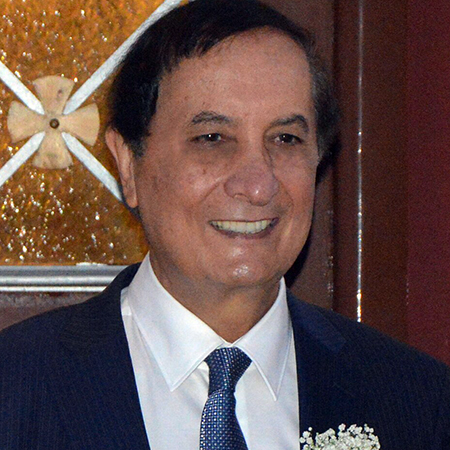
George S. Tavlas ’67
Monetary Policy Council Member, Bank of Greece
George Tavlas is a monetary economist and a member of Monetary Policy Council at the Bank of Greece. His research interests are in international monetary policy, monetary union, and exchange rates.
Beyond Professor Tavlas’ scholarship, he has had an active role in the Bank of Greece as a director. He also worked for the International Monetary Fund and the U.S. State Department, and served as a consultant for the Organization for Economic Co-operation and Development (OECD) as well as the Brookings Institution.
Professor Tavlas received a PhD and an MS in economics from New York University and a BA from Babson College.